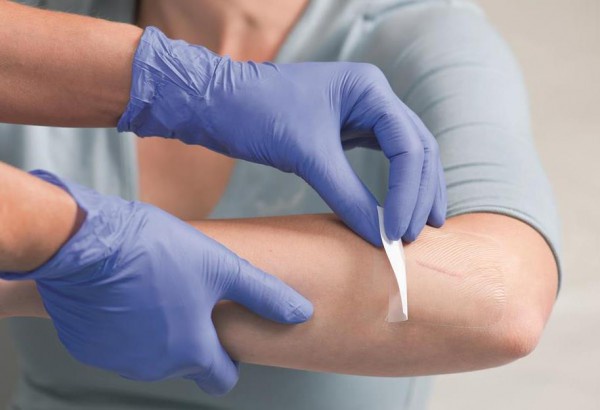Wound care is an important aspect of health, whether a small cut or a more serious injury. When it comes to wound care, there are a few different types of cleansers available on the market: antimicrobial and simple.
This article will look closely at these wound cleansers and compare their features. We'll also examine the pros and cons of each type of cleanser to help you decide which is best for you and your needs.
Overview of Simple Wound Cleansers
Simple wound cleansers effectively remove dirt, debris, and bacteria from the wound bed. They are available as liquids, pads, or swabs and can be used as a primary or secondary cleanser.
They are generally non-irritating and non-sensitizing, making them a good choice for sensitive skin. Some simple wound cleansers also contain agents that help to promote wound healing.
Conventional wisdom dictates that simple wound cleansers should be used whenever possible, as they are less likely to cause irritation or infection than antimicrobial wound cleansers.
Overview of Antimicrobial Wound Cleansers
Antimicrobial wound cleansers are a more recent addition to the wound-cleansing arsenal, and they differ from simple wound cleansers in two key ways:
- First, antimicrobial wound cleansers contain ingredients that kill bacteria on contact. This makes them a better choice for wounds that are already infected or have a high risk of infection.
- Second, these cleansers come in two varieties: alcoholic and non-alcoholic. Alcoholic wound cleansers are more effective at killing bacteria but can also be harsh on the skin. Non-alcoholic wound cleansers are less effective at killing bacteria, but they are gentler on the skin.
- Or, you can also go with antimicrobial wound gel, which will benefit you.
Benefits and Drawbacks of Simple Wound Cleansers
When it comes to wound care, one of the most important decisions you'll make is what type of cleanser to use. There are two main options: simple and antimicrobial.
- Simple wound cleansers are just that—simple. They're composed of basic ingredients like water, soap, and alcohol. They're effective at cleaning the wound and removing debris and are affordable and easy to find.
- On the other hand, other wound cleansers contain antibacterial ingredients that help kill bacteria and prevent infection. They're more expensive but offer added protection against infection.
So which is the right choice for you? It depends on your specific needs. If you're looking for an affordable and easy-to-use cleanser, choose a simple option. If you want more protection against infection, go with an antimicrobial wound cleanser.
Benefits and Drawbacks of Antimicrobial Wound Cleansers
When it comes to wound care, an antimicrobial wound cleanser can offer a few advantages over a simple cleanser. It's important to weigh the pros and cons before deciding which cleanser is right for you.
Benefits of Antimicrobial cleansers
- The biggest benefit of an antimicrobial wound cleanser is its ability to reduce the risk of infection.
- The active ingredients in these products are effective at fighting bacteria, viruses, and fungi that can cause infections.
- This can help speed up healing and may even reduce pain and inflammation.
Every product indeed has its downsides too. Let's have a look at them.
- The downside is that some antimicrobial wound cleansers may be too harsh on the skin and cause dryness or irritation.
- Additionally, they're not good for sensitive skin types as they may be too aggressive.
- Also, because they contain active ingredients, they should not be used too often or for too long, as this could lead to skin irritation or drying.
What to Consider When Choosing Between Simple and Antimicrobial Wound Cleanser
You should keep a few key points in mind when choosing between a simple and antimicrobial skin cleanser.
First, think about how much protection your wound needs. If you have minor cuts or scrapes on the surface of your skin, simple wound cleansers can effectively clean the wound and prevent infection. However, if your wounds are deeper or more severe, you should opt for an antimicrobial cleanser that can penetrate deeper into the skin and help prevent bacterial growth.
Second, consider the cost. Antimicrobial cleansers tend to be more expensive than their simple counterparts due to the additional ingredients used for added protection against infection. Depending on your budget, you may need to weigh out the pros and cons of each type of cleanser before deciding which one is best for you.
Finally, think about how comfortable the product is to use. While both types of wound cleansers can effectively clean wounds and prevent infection, some products may cause irritation or discomfort when applied to sensitive areas of the skin. Be sure to read up on reviews from other users to make an informed decision regarding which type of product will provide the best comfort during use.
Conclusion
Ultimately, it's important to know that not all wound cleansers are equal. There are many different types available on the market. And it can be tricky to figure out which is the best for you and your specific needs. You can find the perfect cleanser for your situation by researching and comparing products.


No comments yet